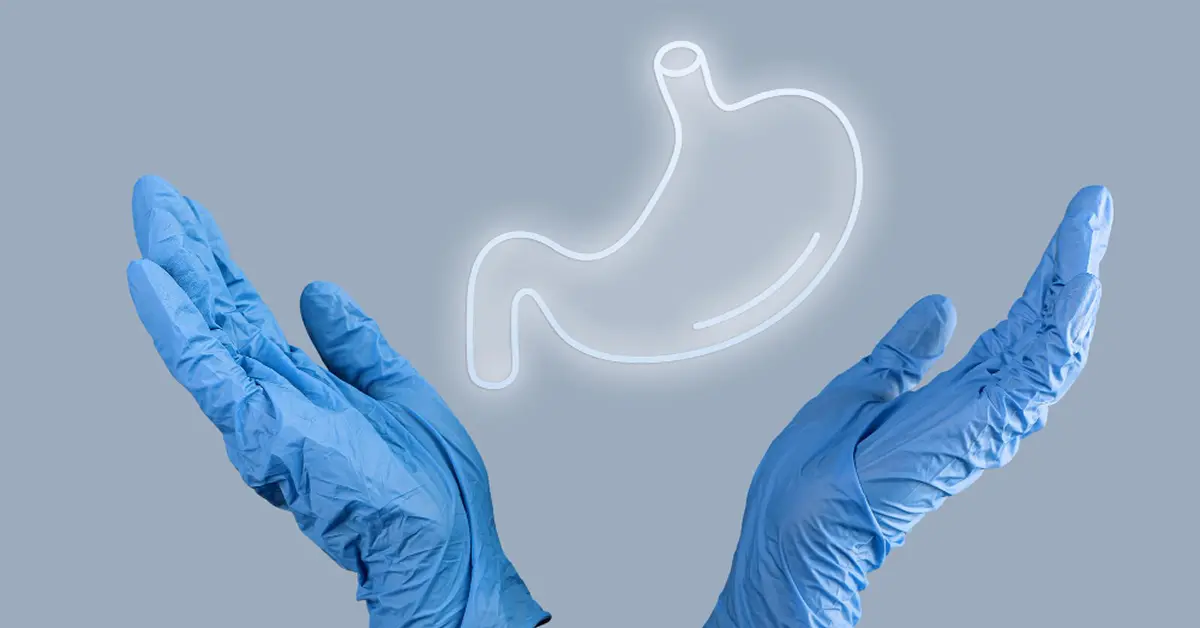Do you often experience a persistent burning sensation in your stomach, especially between meals or late at night? If you’ve noticed recurring bloating, nausea, or discomfort after eating, these could be more than just temporary digestive issues, they might be symptoms of a peptic ulcer, a common yet treatable gastrointestinal condition.
At GI Solutions, located in Chicago, we’re committed to empowering our community with accurate, timely information to prevent and treat digestive health issues effectively. Let’s explore what peptic ulcers really are, what causes them, and most importantly, how you can treat and prevent them for long-term relief.
What Are Peptic Ulcers?
Peptic ulcers are open sores that develop on the lining of the stomach, upper small intestine (duodenum), or esophagus. These sores occur when the protective mucosal barrier becomes weakened, allowing stomach acid to damage the underlying tissue. Contrary to old myths, ulcers aren’t solely caused by spicy food or stress.
What Really Causes Peptic Ulcers?
The two primary culprits behind peptic ulcers are:
1. Helicobacter pylori (H. pylori) Infection
This bacteria can colonize the stomach lining, triggering inflammation and ulceration. While many individuals carry H. pylori without symptoms, a combination of genetic, environmental, and immune factors may determine who develops ulcers.
2. Long-Term Use of NSAIDs
Over-the-counter pain relievers like aspirin and ibuprofen can damage the stomach lining when taken regularly, especially without food or in high doses.
Less common causes include severe physical stress (such as surgery or trauma), rare conditions like Zollinger-Ellison syndrome, or side effects from certain cancer treatments.
Recognizing the Symptoms
Peptic ulcer symptoms can vary but often include:
- Burning or gnawing pain in the upper abdomen
- Pain that worsens on an empty stomach or at night
- Temporary relief after eating or taking antacids
- Nausea, bloating, and frequent belching
- Loss of appetite and unexplained weight loss
If you experience vomiting blood, black or tarry stools, severe abdominal pain, or dizziness, seek immediate medical attention. These may indicate complications like internal bleeding or perforation.
Peptic Ulcers: Diagnosis and Treatment in Chicago
At GI Solutions, our specialists use non-invasive tests such as breath tests, stool antigen testing, endoscopy, or biopsy to accurately diagnose the presence of H. pylori or assess ulcer severity.
Evidence-Based Treatment Options
- Antibiotics to eradicate H. pylori infection
- Proton Pump Inhibitors (PPIs) or H2 blockers to reduce acid production
- Cytoprotective agents that coat the stomach lining and aid healing
Lifestyle Adjustments for Healing and Prevention
To support recovery and prevent recurrence, we recommend:
- Limiting or avoiding NSAIDs; consult your provider for alternatives like acetaminophen.
- Quitting smoking and avoiding alcohol—both irritate the stomach lining and slow healing.
- Managing stress with mindfulness practices, exercise, and adequate rest.
- Eating smaller, frequent meals and identifying any dietary triggers (spicy or acidic foods, caffeine, fatty meals).
Diet Tips That Support Digestive Healing
Incorporating high-fiber foods, probiotics (like yogurt or kefir), and anti-inflammatory ingredients can enhance recovery. Staying hydrated and avoiding late-night meals also support a healthier digestive tract.
Mental Health and Ulcer Risk
Emerging research, including studies from institutions like the University of Chicago Medicine—suggests a compelling link between chronic anxiety and ulcer development. While H. pylori remains the primary cause, emotional stress may compromise immune responses and increase susceptibility. This evolving perspective highlights the value of holistic gastrointestinal care that considers both physical and psychological well-being.
Potential Complications
If left untreated, peptic ulcers can lead to:
- Internal bleeding, resulting in fatigue, anemia, or blood in vomit/stool
- Perforation, where the ulcer creates a hole in the stomach lining, an emergency situation
- Obstruction, blocking food passage and causing vomiting or bloating
- Increased risk of stomach cancer, particularly with chronic H. pylori infection
Early diagnosis and personalized treatment significantly reduce these risks.
Prevention Starts with Awareness
The key to avoiding peptic ulcers is reducing exposure to known causes:
- Practice proper hygiene, wash hands and consume well-cooked food to limit H. pylori exposure.
- Use NSAIDs sparingly and always under medical supervision.
- Stop smoking and moderate alcohol intake.
- Maintain a balanced diet and adopt a stress-resilient lifestyle.
Don’t Ignore the Signs—Take Action Today
If you’re experiencing symptoms of a peptic ulcer, don’t wait until complications arise. The earlier you seek care, the better your chances for a full recovery.
At GI Solutions, we provide expert care rooted in the latest research and personalized treatment plans tailored to your digestive health needs. Our endoscopy suite and decades of gastroenterology in Chicago expertise make us a trusted choice for ulcer diagnosis and management.
📞 Call us today at (773) 631-2728
Or Visit our website to request an appointment online


